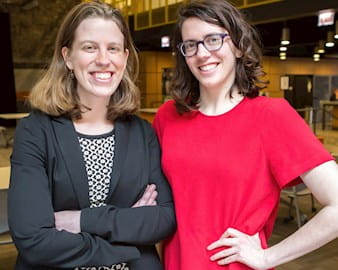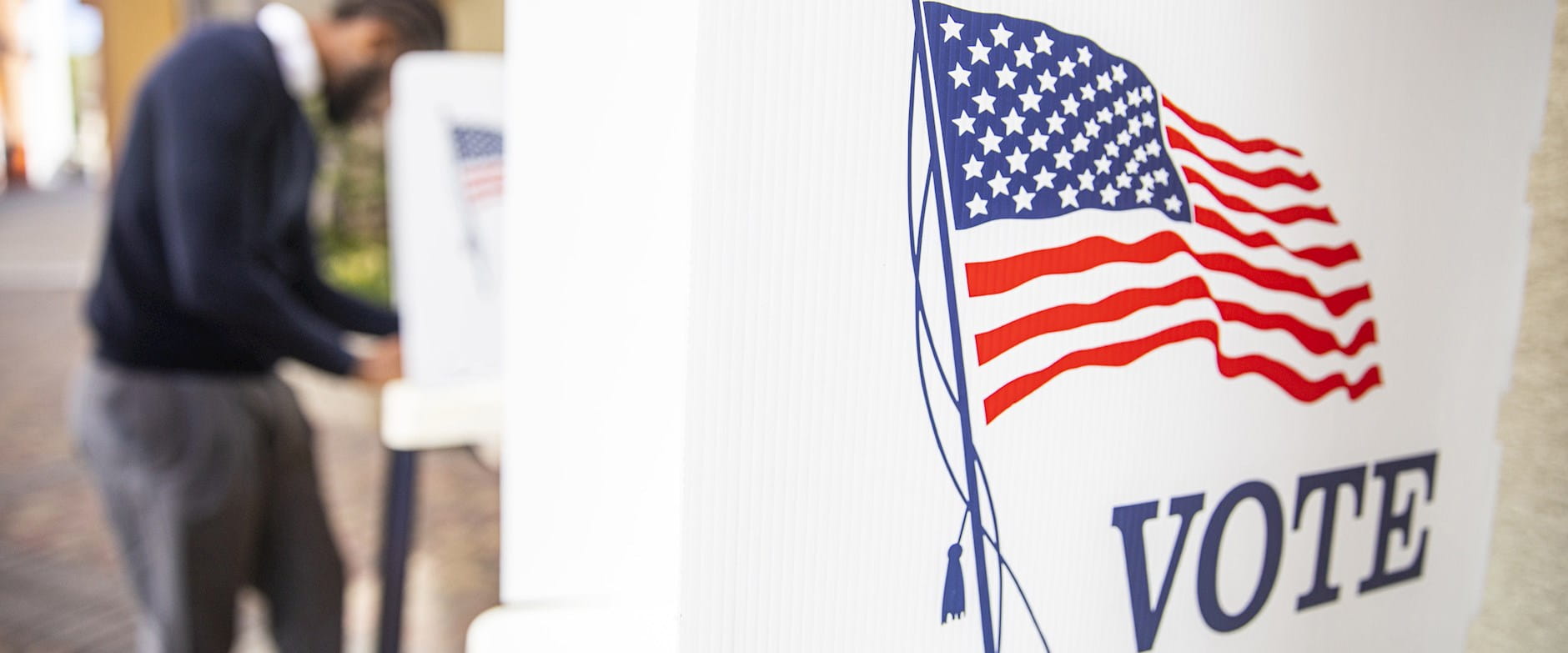
In 2014, Aviva Rosman, AB ’10, MPP ’16, decided to run for a local office in Chicago. So she got back in touch with her college friend, Alex Niemczewski, AB ’09, and asked if she could have her vote.
Niemczewski’s reply changed both of their lives: Of course, but I didn’t even know the election was taking place.
The friends set out to build a website that could educate voters about the down-ballot candidates and issues—as well as the popular ones. A year later, they cofounded BallotReady and their startup idea won the John Edwardson, ’72, Social New Venture Challenge (SNVC).
“Across the country, there are over a half million elected officials, and 96 percent of them are elected at a local level,” said Rosman, COO and cofounder of BallotReady. “But we know from research and personal experience that when most people go and vote, they don’t have the information to make informed decisions. They guess or leave blanks.”
Rosman added: “These half million officials have a huge effect on our daily lives in terms of our roads, schools, and environment. It’s crazy we’re electing them based on guesses. We want to create a future where everyone can vote informed all the way down the ballot. This has huge potential for change in terms of how our communities are represented and the policies that result.”
Operated by the Rustandy Center for Social Sector Innovation at the University of Chicago Booth School of Business, along with the Polsky Center for Entrepreneurship and Innovation, the SNVC has jump-started more than 100 nonprofit and for-profit ventures with social missions since 2011 that have raised more than $35 million.
BallotReady founders said winning the SNVC prepared them for growth.
Since its founding, BallotReady has reached more than 9 million voters, covered 95,000 candidates, and raised more than $2.2 million for its efforts. It also sells subscriptions to a separate platform for PACs, advocacy group, campaigns, and media groups to create tools to inform and turn out voters.
In 2020, BallotReady is setting its sights on an even more ambitious goal: reaching 50 million people and covering every US primary. Along with 20 full-time employees, BallotReady will put more than 100 researchers to work aggregating information from candidate websites, social media, press, endorsers, and board of elections.
The SNVC helped BallotReady founders hone their business pitch, think through what specific problem they were trying to solve, how to talk about it, and how to create a solution.
“The SNVC enabled us to get partners, to get potential customers on board, refined how we talked about our venture, and helped us pitch investors,” Rosman said. “The fact that I was able to join BallotReady full time after graduation with a salary—we couldn’t have done that without the SNVC.”
Back then, BallotReady founders piloted a study to show how their concept would work. They made paper voting guides for the Chicago mayoral runoff in 2015, and locals took notice.
“I was introduced to it when it was launched for the mayoral election, and I used it as a free voter guide,” said Adrian Segura, deputy chief for community engagement at Chicago Public Schools. “Not only did I use it personally, but I’ve been able to educate others and get people informed. People are surprised by how many candidates they’re actually voting for. You really get into the weeds with the judges and county representatives.”
Segura repeatedly heard Chicagoans say they had no idea so many people were running, especially in uncontested races. This sparked civic conversations and even interest in the process of running for office.
As BallotReady collects more and more information about candidates, founders hope those running for elected office will prioritize a web presence and make their positions on issues widely known.
“BallotReady took a really complicated problem—educating voters about down-ballot candidates—and presented a simple, powerful solution in its free online platform,” said Robert Gertner, Joel F. Gemunder Professor of Strategy and Finance and the John Edwardson Faculty Director of the Rustandy Center. “Their innovative venture helped bridge the education gap while also tackling a larger social issue. That kind of social impact is exactly why we launched the SNVC 10 years ago.”
This is part of a series of stories celebrating the 10th anniversary of the SNVC, which is run by Chicago Booth’s Rustandy Center for Social Sector Innovation and the Polsky Center for Entrepreneurship and Innovation.


